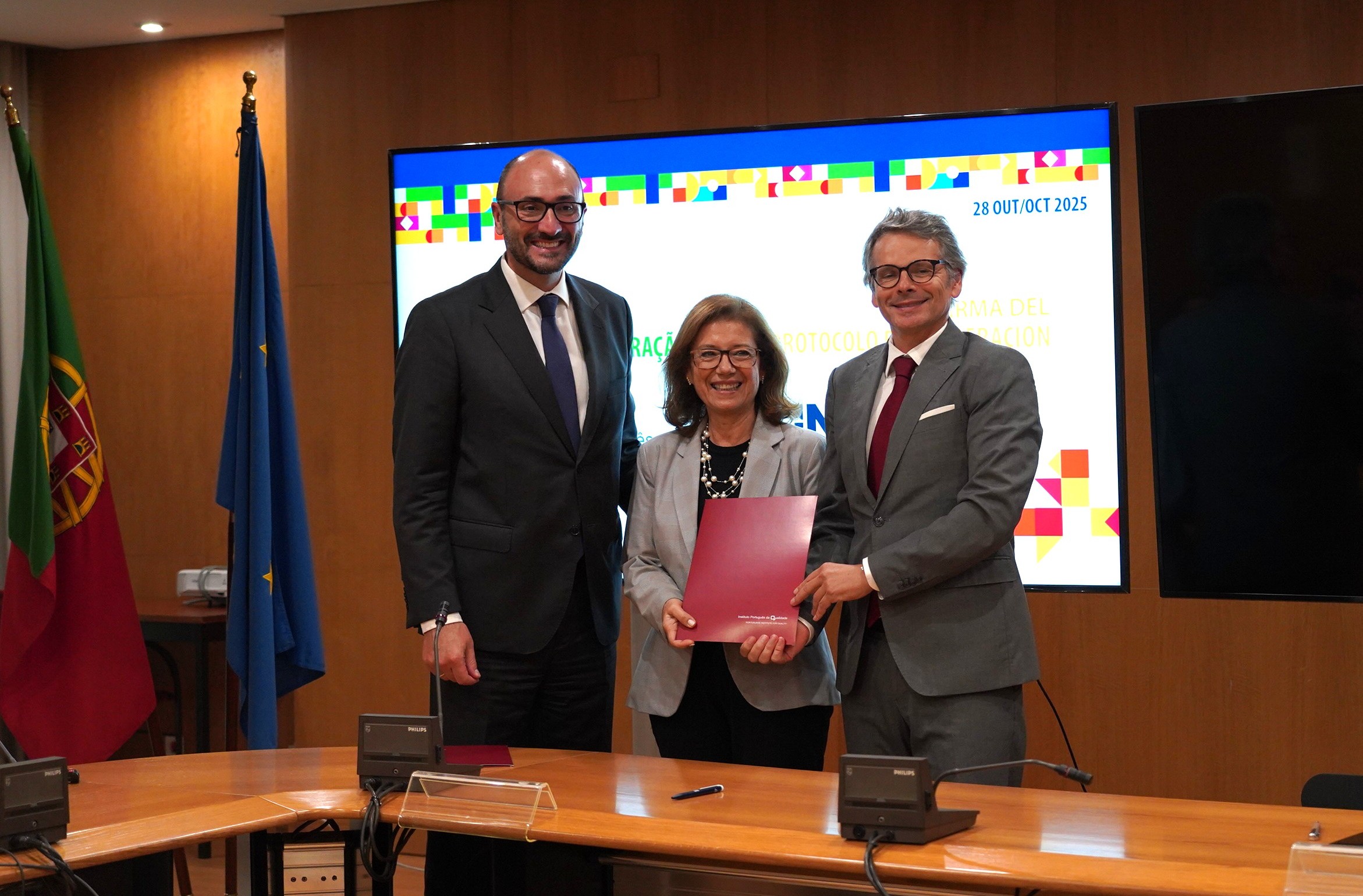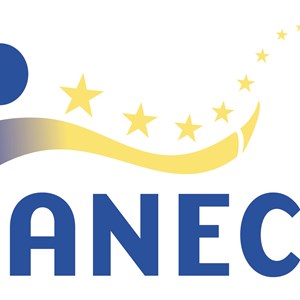The first Iberian Standardization Meeting brought together more than 300 participants and promoted discussion on the Digital Product Passport.
The Portuguese Institute for Quality (IPQ) hosted the first Iberian Standardization Meeting, a joint initiative with the Spanish Association for Standardization (UNE), on 28 October, held at the Ricardo Fernandes Auditorium, IPQ, Caparica.
Under the theme “Partnerships for a Sustainable and Competitive Digital Market,” the event formed part of the celebrations of World Standards Day, dedicated to Sustainable Development Goal 17 – Partnerships for the Implementation of the SDGs. It brought together more than 300 participants, including business, technical and institutional representatives from Portugal and Spain, as well as several Spanish companies, for a debate focused on the challenges of the digital and sustainable transition.
The Digital Product Passport, a strategic initiative of the European Union aimed at promoting traceability, circularity and regulatory compliance throughout the product life cycle, was the core topic of the thematic round tables:
- European Regulation and Implementation Challenges, with Óscar Nieto (European Commission – DG Grow);
- Construction (BIM) and Metallurgy Sectors, with Pedro Mêda (University of Porto), Sergio Muñoz Gómez (buildingSMART Spain) and Cláudia Ribeiro (CATIM), moderated by Beatriz Águas (GS1 Portugal);
- Ecodesign Regulation and the Batteries Sector, with Francesca Chiovenda (GS1 Global Office), Carlos Nogueira (INEGI), Franco di Persio and Eva Roldán (CIRCE, Spain), moderated by Pedro Oliveira Lima (GS1 Portugal);
- Textile Sector, with Ana Barros (CITEVE), David Allo (Consejo Intertextil Español) and Héctor Viniegra Bernal (TECNALIA), moderated by Manuel Martinez (GS1 Spain).
The opening session included remarks by João Rui Ferreira, Portuguese Secretary of State for the Economy, João Pimentel, President of the Portuguese Institute for Quality (IPQ), and Javier García, Director-General of UNE and ISO Vice-President, offering insights into the future of international standardization.
The closing session was delivered by Gonçalo Ascensão, representing CEN and CENELEC, who emphasized the role of Iberian cooperation in building a more robust, inclusive and sustainable European standardization system.
The event was supported by GS1 Portugal, which chairs and coordinates the Portuguese Technical Committee CT 228 dedicated to the Digital Product Passport. Participants concluded the event with an informal networking moment.
Iberian cooperation strengthened with the signing of a Memorandum of Understanding
In the morning, a bilateral meeting between IPQ and UNE took place, focusing on the strategic alignment of both countries’ standardization policies. The meeting culminated in the signing of a Memorandum of Understanding, formalizing the reinforcement of Iberian cooperation in this field.
The protocol foresees the exchange of information and good practices, the development of joint projects, the reciprocal adoption of standards in areas of common interest, and the creation of a joint monitoring committee, with annual meetings to review progress and plan future collaborative actions.
The success of this first Iberian Standardization Meeting represents a decisive step in consolidating the partnership between Portugal and Spain, positioning both countries as strategic actors in the development of a modern, inclusive and forward-looking standardization system aligned with European and global challenges.




